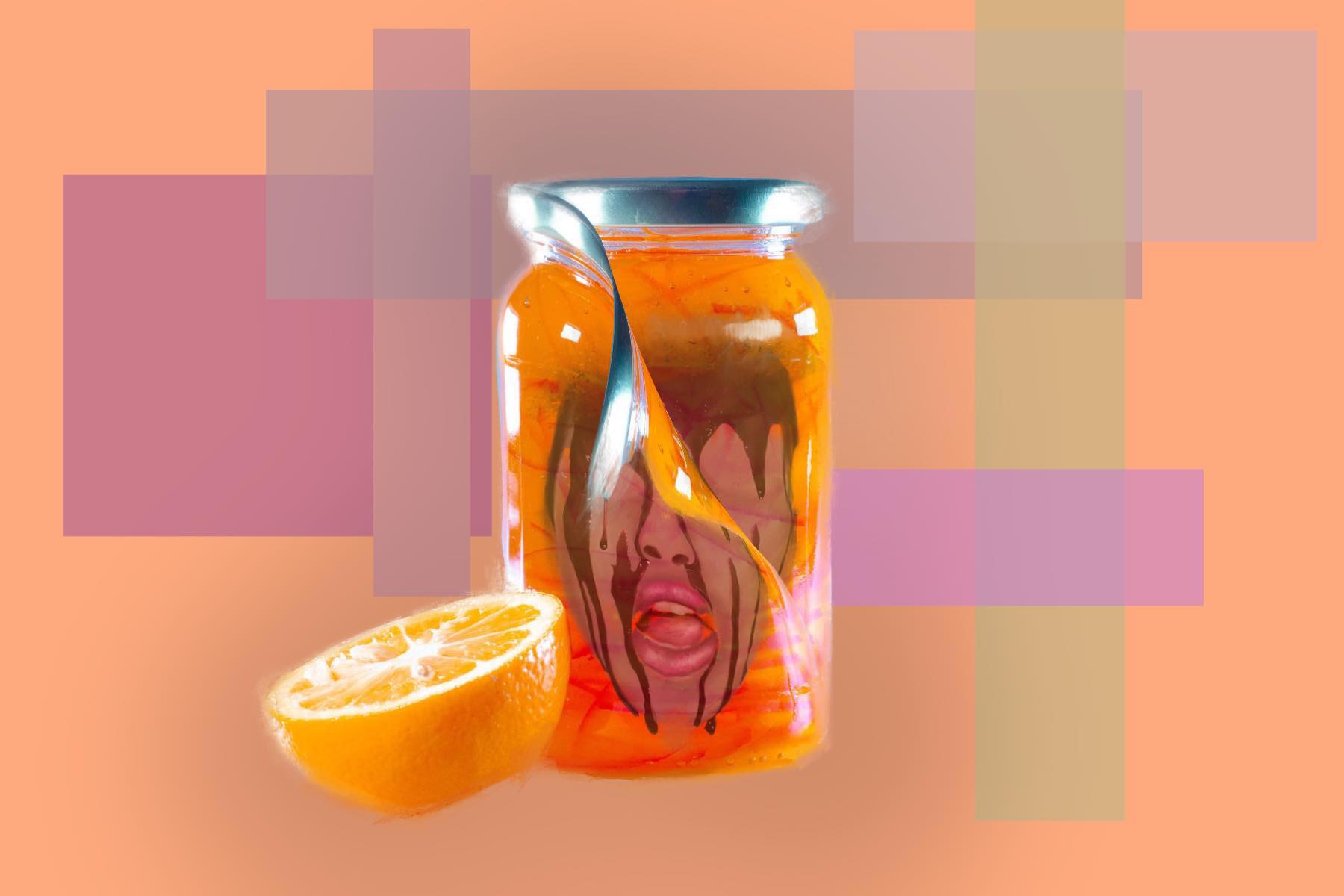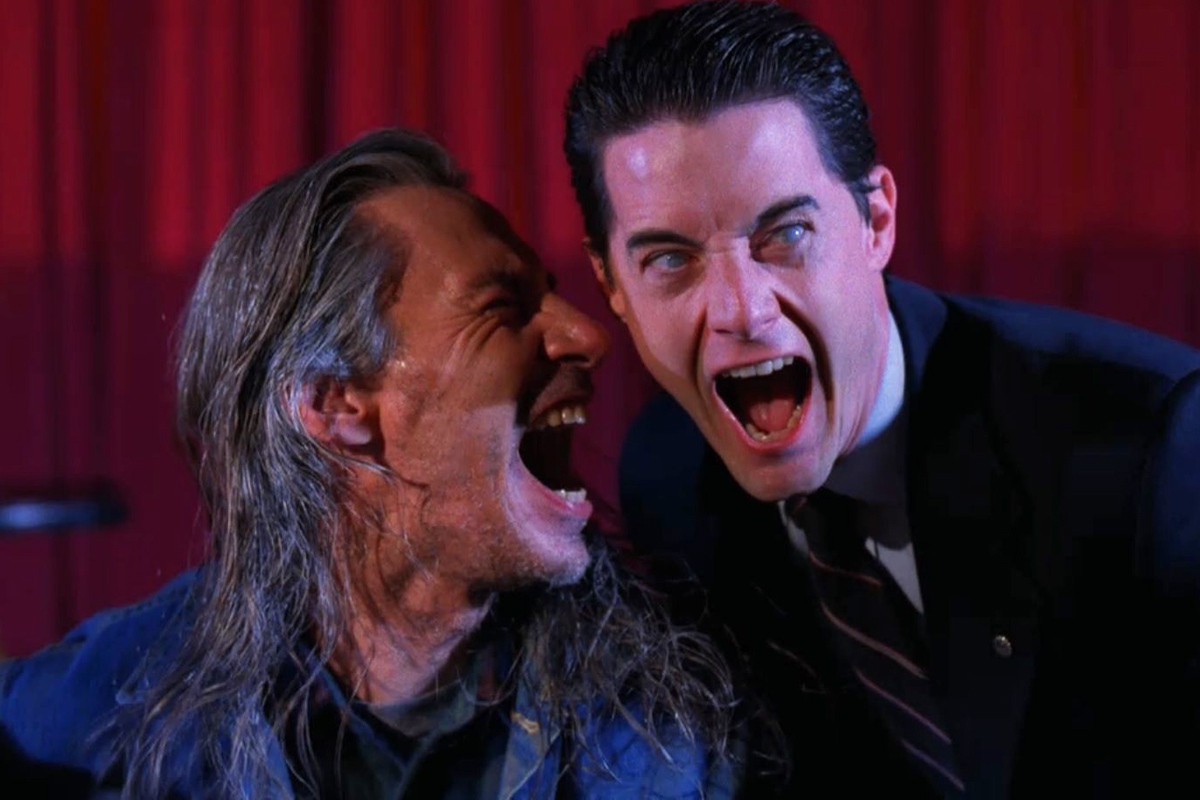
Marmalade
It came as a shock to learn that Barbara was still alive inside the marmalade. The sight of the oranges had brought back the memory of her.
She appeared as an embryo suspended in jelly – the incarnation of a rumination, preserved in vitro. I knew it was her because of the slightly crooked spine, and because of the skull exactly the right shape.
The oranges are from Seville. It’s January now which means they are ripe. It was Klara who bought them at the market. My wife with the soft palms and papery eyes. She is ten years younger than me, and my children dislike her for it.
A painting – one that can be seen two ways – hangs behind her. It’s a gift we received several years ago because my wife used to like art. “I see a rabbit” I had said when I opened it. Klara said she saw a rabbit too. Klara is cutting up beetroot to make a soup. She is going out later to play chess or to discuss books, and some of the people there will tell her she looks like Ingrid Bergman.
Klara knows a man who had worked at the bank in Norrmalmstorg when the famous robbery happened. Norrmalmstorg man is a hypnotherapist now and Klara wants me to meet with him because I talk in my sleep, and this bothers her.
When I dream about Barbara, I dream that we are talking, and that I say something to make her smile, and then I smile back. Sometimes I dream that I am riding a bicycle through a forest, and that I can see a leg – her leg – strung up like a slab of pork and hanging from a tree.
I never talk about my dreams because these are uninteresting to people.
***
I had just moved to the farm outside Seville when I met Barbara. Three miles of cactus-lined dirt track, and fork after fork in the road, had led me to the community walls and to the secret tribe living within them. In all my time at the farm, I met only one man from the world beyond the walls, a world we called Babylonia. This was Mortician man. Like all outsiders, we considered him a threat.
When I arrived, it was the boy who first came running out to meet me. He was pounding the sand with the balls of his feet and leaving behind a huge wall of golden dust. Then Esperanza, with her sad wolf eyes and dress that trailed along the dirt, walked through the wall and joined us at the other side.
On that same evening, Esperanza went and brought me out some mangled scarves and a cool, heavy blanket that she set over my shoulders. We drank rose tea together and ate sweet figs from the garden, and the boy opened his hands to show me the head of a beautiful white lily and said there were fairies living inside it. With him was Barbara – a long, young woman who fixed her stare on me. She asked my name, but her tongue couldn’t shift around the vowels properly. She tried three more times as we walked to get it right, then laughed loudly into the summer evening wind.
Then, fire-side evenings drenched in incense. Each one burned into my memory – watching Barbara play guitar under a banner of stars, the crickets murmuring. Barbara tied a piece of string around my ankle and fused the ends together with a lighter. She rested her chin neatly in the groove of my knee, and I remember thinking that it seemed like the whole world was covered in honey, or that my vision had tinted slightly, tilting gloriously into orange.
***
Mortician man wasn’t really a mortician. He was just an old tramp who collected remains of roadkill, painted their skulls and sold them along the side of the motorway. I learned this from Barbara who had become his friend. Once I caught them talking over the wall and she had pleaded with me not to tell anyone. Mortician man was a window for Barbara. He told her about life outside the walls, about news from all over the world.
The month the Norrmalmstorg robbery was reported, Barbara came running over to tell me about it.
“They call it Stockholm Syndrome,” she explained, “It means to make a bond with your capturer.”
I did not know the expression, but the bank was familiar. It was a nice orange building with elegant windows and shining furniture. Something where bad things would never happen.
“The hostages won’t testify because they feel a connection with the capturers.”
She looked over her shoulder at the walls, and up to the sky.
“They are trapped in the worst possible way.”
***
That first summer was the hottest in more than fifty years, pushing the community indoors. The boy found himself obsessed with the wallpaper – the one with the flowers on it in Esperanza’s house.
Before he had even seen the wallpaper, the boy had been interested by some fish that were swimming around in the fishpond near to the chicken coop.
“Why are there bubbles?” he asked.
“Because they are from the fish— the fish are breathing,” someone had said.
“The hens don’t make bubbles,” the child protested.
“That’s because there is no water.”
“Then the hens are not alive?”
“No, no, cariño. Of all things that are living, some need water and some need air.”
Then, sometime later, he walked inside Esperanza’s house and saw the wallpaper, and burst into tears to think of the poor creature who was producing bubbles behind it, but who had no air and no water to stay living. Day by day, the boy worried more, and he grew stranger and stranger in the heat until the tribe – especially Esperanza – became very worried. I recall seeing her sometimes reach out her purplish arms made of waxy skin and rattling bones and cup the boy’s face in her hands: “Es la luna, cariño,” she would say over and over like a lullaby, “Solo es la luna.”
Then we woke up one morning to find Barbara gone. She wasn’t with the hens, or in Esperanza’s house. She wasn’t out in the field or drawing water from the well, or out gathering bamboo for the hole in the chamber’s roof. She evaporated like water, vanishing suddenly into the sizzling morning haze.
In the days following Barbara’s disappearance, the tribe became withdrawn. Flashlights stroked the nearby dirt roads. Machetes hacked at the overgrowth in the forest. We called out again and again the name “Barbara!” – a name that had become both sweet and tart.
And all the while, Mortician man was stalking the community walls.
***
Everything inside the walls had changed. Nights in the chamber were uncomfortable. I could never sleep. I could do nothing except feel the darkness on my face and wish that I could fall asleep again and dream of Barbara. One night, when I was staring up at the stars through the hole in the bamboo roof, I felt a tug on my sleeping bag, followed by a whisper of footsteps that paused just outside the hut, then paced. I looked around me, seeing nothing but a jungle of shapes and shadows. There was only the chamber and its people who were lying like heaps of sugar on the floor.
“Who is it?” My voice was soft, scarcely shaking.
It is nobody, I thought. And now a cat slunk into the room. Its tail lit with a greenish fire shot straight from the moon. Still, I shook myself from my sleeping bag and walked out of the dark chamber.
And there she was – Barbara, standing there. Outside and alone in the open clearing. Breathless from running and laughing – like she used to – into the wind. Something in my stomach bloomed.
I walked towards her along the wet sand. I could see then that Barbara’s hair was longer and darker than I remembered, flooding into the night mist. I half expected her to turn, to run, but she just watched me approach. And then we were standing face to face. And bells seemed to ring, a chiming carried on the wind.
Then Barbara spoke with dancing eyes about her time beyond the walls. About women with candy floss hair and lips painted red vermillion. About men in long, colourful shirts. She said she saw the sun go down on a sunflower field and had bought fresh tomillo from gypsies outside a cathedral.
I swallowed hard when she told me about the man who had made her a chain of paper roses. The one who promised her flowers in Amsterdam and paintings in Paris. I fought the rise of a steady inward howl when she told me of Mortician man who had encouraged her to leave and found her somewhere safe to stay, of the sleeping pills slipped into the herb tea so that everyone – except me, her friend – would not know her plans to escape the walls.
I hear the sharp, metallic clank of a spoon; I am home again. Klara hums softly to herself and wipes both hands on an apron with pink ruffles all along the bottom of it. The light in the lid of the saucepan plays gently around her jaw. I look at her small red earrings and think to put the jar of marmalade away.
It occurs to me then to ask my wife whether she still likes art. The question, thrown out like a line across the room, hangs starkly for a moment in the air.
Klara looks up at me from behind the stove. A tentative smile spreads slowly on her lips.∎
Words by Isabella Porter. Art by Sasha LaCômbe.






